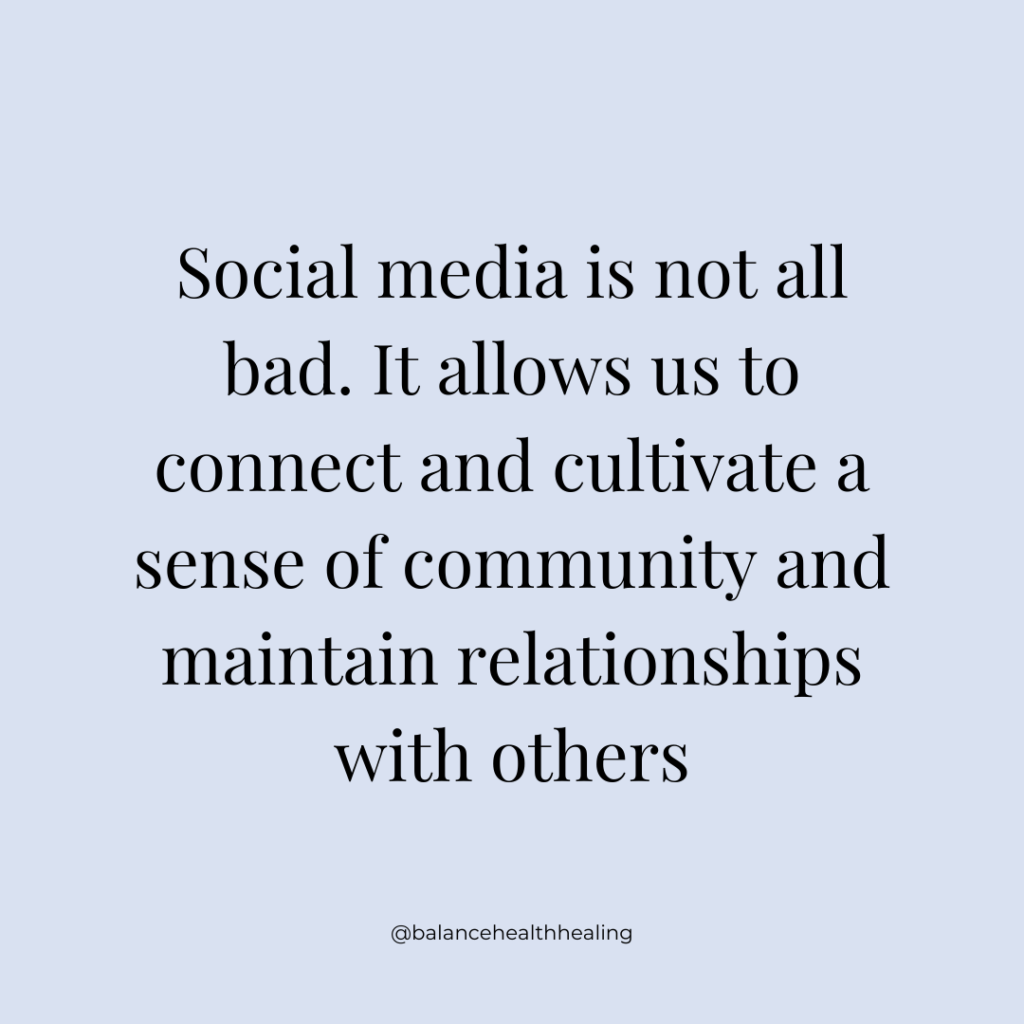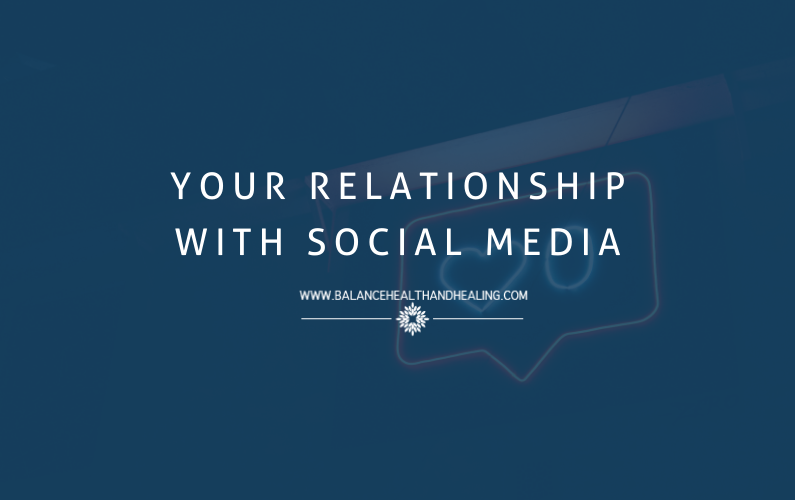In 2024, the average daily time spent on social media in the U.S. was two hours and 16 minutes (Statista, 2024). So much of our time and energy is dedicated to online platforms such as Instagram, TikTok, YouTube, or Snapchat. Higher social media use can lead to negative mental health outcomes, such as depression, anxiety, and poor sleep (U.S. Surgeon General’s Advisory, 2023). The content we view often portrays unrealistic standards for beauty and bodies, leading to comparison and feelings of inadequacy. This can result in poor body image, disordered eating behaviors, and decreased self-esteem.
Social media is not all bad. It allows us to connect and cultivate a sense of community and maintain relationships with others. Social media provides an outlet to express ourselves. It gives us access to countless resources to learn more about diverse experiences and perspectives. Social media offers a source of humor through hilarious reels or memes that give us a much-needed laugh.
In the past, I struggled to find balance in my relationship with social media. I found that as I was consistently keeping up with how others were spending their time, I was not living my own life. Many of my clients navigating recovery from an eating disorder, body image concerns, and other mental health struggles have also wrestled with the role social media plays in their lives. Finding balance with social media is unique to each individual. For some clients, eliminating social media use altogether has provided space for needed healing. For others, social media accounts have offered access to resources and support for current mental health challenges.
Questions to explore about your relationship with social media:
- What prompts you to turn to social media?
- Connection with others, a source of distraction, to numb uncomfortable feelings (such as boredom, sadness, or loneliness), etc.
- What feelings arise while you are scrolling through social media?
- How do you feel after consuming social media?
- Does your social media consumption hinder or enhance your ability to connect with others in your daily life?
- What does balance and mindfulness look like in your personal relationship with social media?
Things to Consider:
- Create Boundaries (American Psychiatric Association, 2024; Oliveira, 2024)
- Creating your own boundaries with social media could look like: setting limits for screen times, muting social media notifications, designating a specific time for social media use, creating media-free areas in your home, or taking an intentional hiatus from social media
- Cultivate Your Feed
- Unfollow accounts that promote comparison and unrealistic standards
- Fill your feed with accounts that are educational, uplifting, and empowering
- Practice Critical Consumption (Oliveira, 2024)
- Instead of engaging in mindless scrolling, actively seek out content from credible, evidence-based sources
- Recognize that you are viewing a “highlight reel” of curated, photo-shopped, and filtered content that is not always representative of reality

